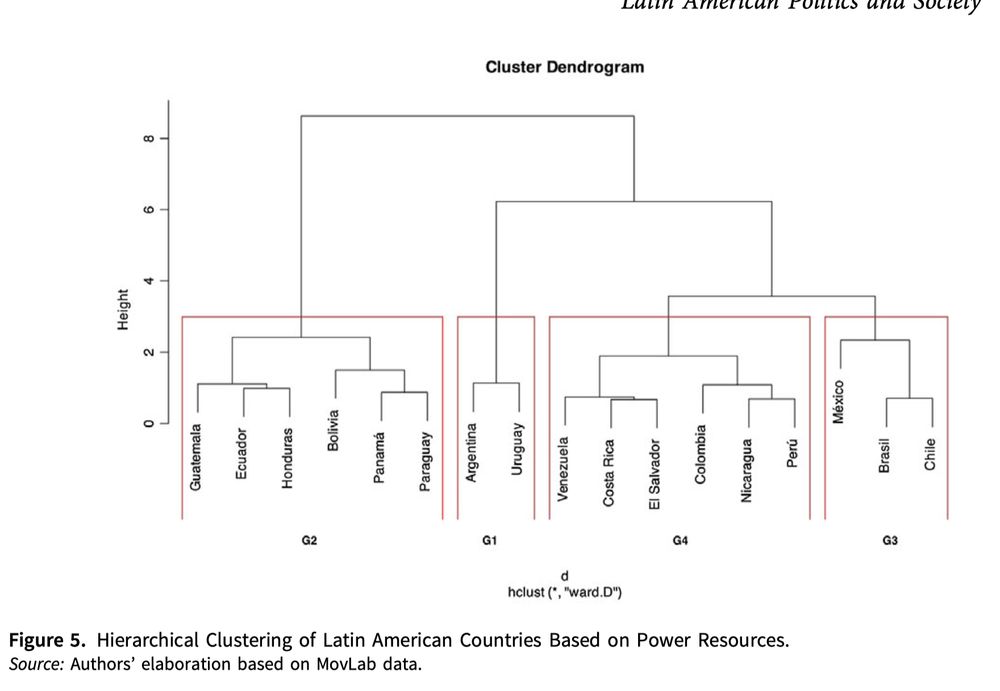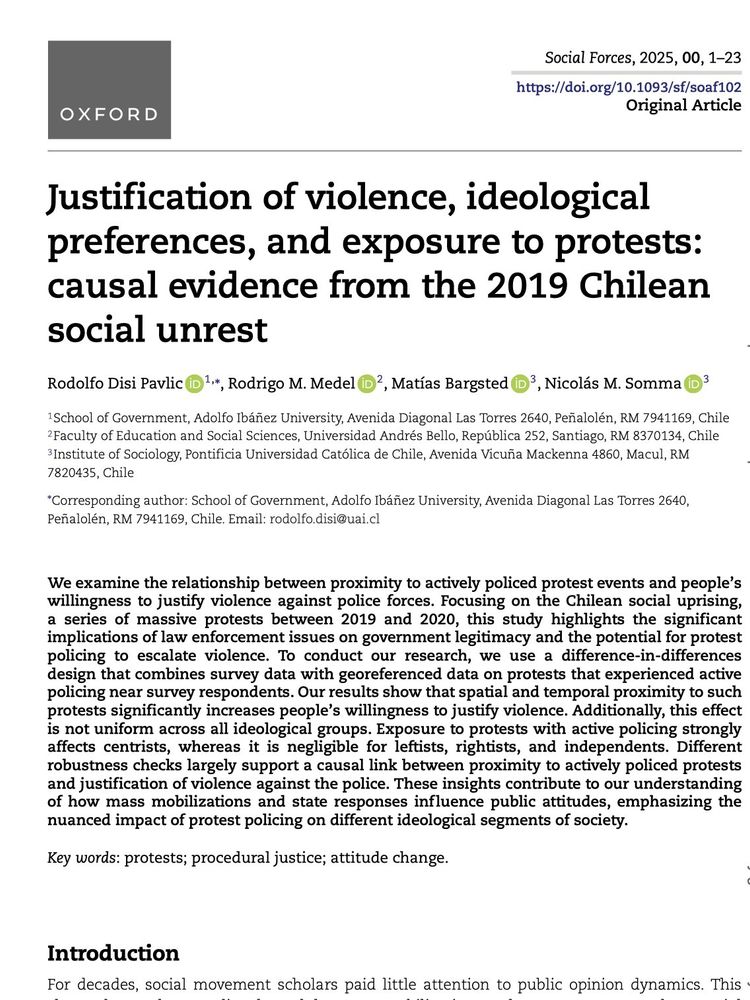Rodrigo Medel Sierralta
@rodrigomedels.bsky.social
350 followers
340 following
36 posts
Sociólogo y politólogo | Académico en Faculta de Gobierno, Universidad de Chile | Doctor en Ciencia Política | Investigo participación política, protestas y sindicalismo.
https://sites.google.com/view/rodrigomedel/bio
Posts
Media
Videos
Starter Packs
Reposted by Rodrigo Medel Sierralta
Reposted by Rodrigo Medel Sierralta
Reposted by Rodrigo Medel Sierralta






















